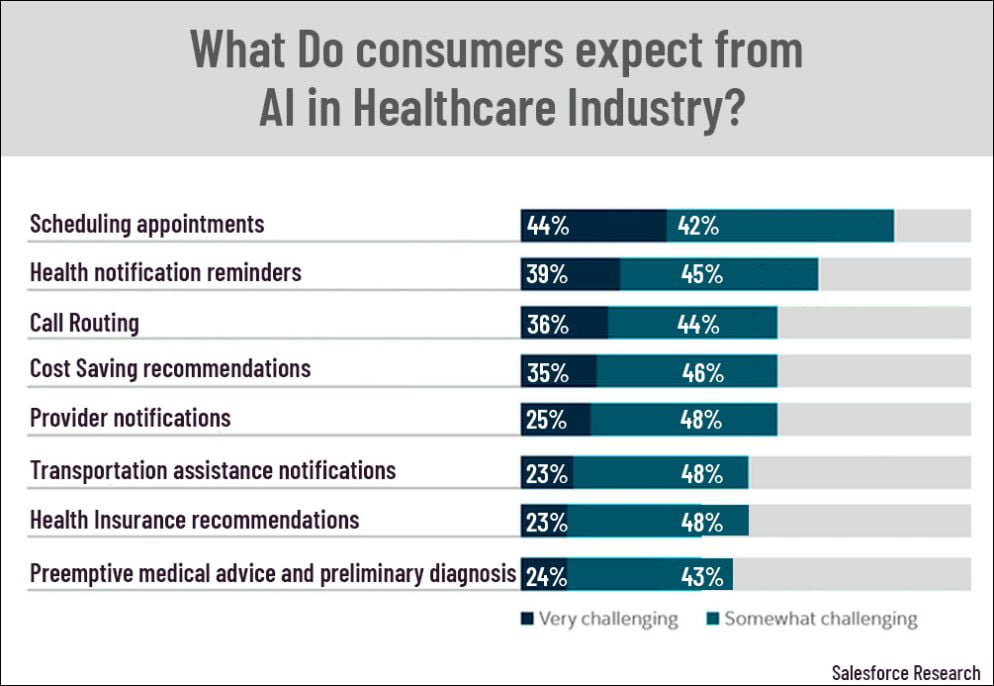If you work in the healthcare industry, there’s probably one word that causes your heart to sink into your stomach each time you see it or hear it: cost. The healthcare industry has been plagued by high costs and rising premiums for decades, and many companies are struggling to reduce their own overhead so they can pass along the savings to customers and patients. Unfortunately, many healthcare companies aren’t considering the customer experience when they’re trying to be more efficient, and AI is making it clear that this strategy doesn’t work in the long run.

Customer service can be automated
Customer service must be automated for better, faster, and more efficient healthcare services. AI Chatbots increase customer satisfaction by 95% and solve 85% of queries. They can connect to multiple apps and automate communication between departments. And best of all, they don’t leave for a better job at another company! More importantly, healthcare firms need to be fast. Too many customers are leaving because of poor service or excessive wait times. Chatbots can take care of routine questions (like checking in for a doctor’s appointment) without wasting your staff’s time (or yours). As self-service increases, you’ll be able to spend more time with complicated cases or those customers who still want to talk over the phone.
The most expensive diseases can be detected at an early stage
The most expensive diseases such as cancer, heart disease, and Alzheimer’s can be detected at an early stage. This is crucial because when caught early they are usually cheaper to treat and increase our chances of survival. In addition, early detection saves lives and reduces costs drastically. Imagine if you could have saved a life for just $10 dollars! AI offers doctors access to more data than ever before and can help them detect disease earlier.

Diagnoses are more accurate
AI can be used to predict the probability of a negative diagnosis with 95% accuracy. This means that doctors will have access to more accurate diagnoses when dealing with patients, allowing them to delight customers with clear answers. Improved Accuracy is a Huge Plus for Patient Care and Growth. Not only does improved accuracy increase the experience for patients and their families, but it makes for happier, healthier employees that are likely to stay at the company for a longer period of time.
Costs can be reduced
Healthcare automation through AI reduces costs significantly. Additionally, AI can help to optimize schedules to allow for physician-patient interaction and decrease turnaround time in radiology interpretation. These methods help businesses increase revenue by delivering higher quality service at a lower cost than manual labor. Automation can also help you delight customers and provide top-notch service throughout all stages of treatment. The use of digital health assistants has been shown to improve quality of life when combined with more traditional care tools. Finally, technology helps you remove many administrative tasks that are no longer as valuable as they once were which helps businesses operate more efficiently and economically. Cost savings help in offsetting some customer costs making it a win-win for the customer and the organization.
To Sum Up
The bottom line is that hospitals, as healthcare providers, need to focus on patient care first. If they can do that, more automated health care processes will benefit their patients in both diagnostics and treatment. However, without an emphasis on patient care, these new healthcare technologies will only make systems more efficient for health care providers at a cost to those using them. When people become a priority in healthcare it makes sense to have automated diagnostic tools to pinpoint issues before they are critical and AI robotic surgeons such as da Vinci have increased safety while performing surgery under less invasive methods.

